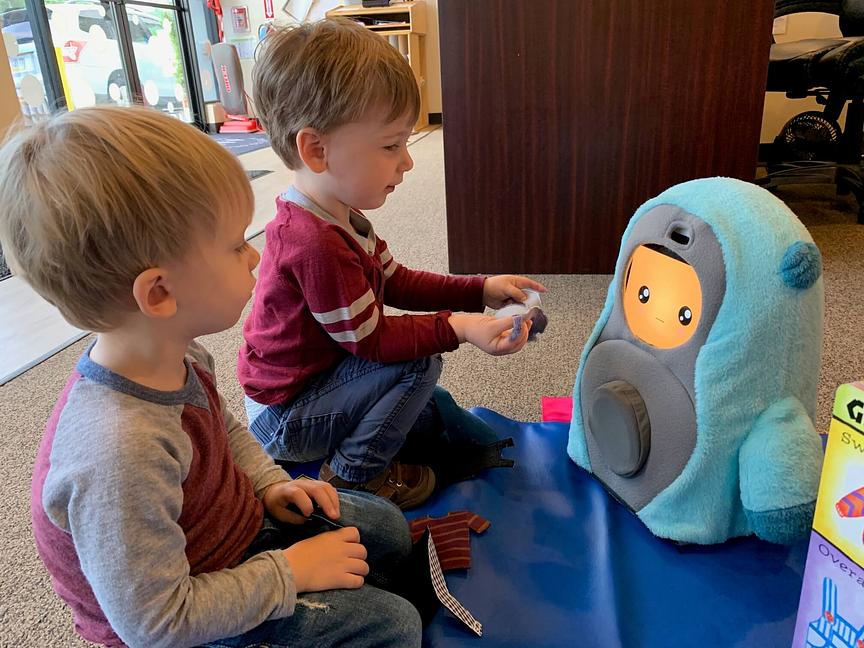A talking blue stuffed toy is not what comes to mind when most people think of an autism therapist.

However, as therapy has found itself transformed in the last several years with the pandemic and rise of telehealth options, a therapist now can come in all shapes and sizes – including, in this case, as a two-foot-tall toy with a bright digital animated face. This particular stuffed animal contains a tablet outfitted with the recently launched telehealth app PeerBOTs, a social robot puppet app designed to support tele-delivered therapy for children with Autism Spectrum Disorders (ASDs). The app was developed by Fine Art Miracles in partnership with the Autism Science Foundation (ASF), a not-for-profit organization dedicated to funding autism research.
“During the pandemic we recognized the need to improve tele-delivered therapy” said Dr. Alycia Halladay, Chief Science Officer at the ASF. “Having an extension of the therapist in the room via a beloved doll or toy with the child increases the chance of the child engaging with the material, thus improving their outcome.”
PeerBOTs functions as a remote-controlled digital puppet. Devices including phones, tablets, or computers can be outfitted with the PeerBOTs app and used to communicate with the children through a friendly animated cartoon face. The device sits in the room with the child receiving therapy, but is controlled remotely by the therapist. The open-source app is completely free and is available to download on the iOS App Store, Android Google Play App Store, as well as Windows and Linux systems. There’s additionally a user guide included on the app once downloaded.
“It has become increasingly common for therapists to be in a different location from those receiving therapy,” said John Choi, Lead Developer of PeerBOTs and a Research Engineer at Carnegie Mellon University. “Social robots have a proven potential to impart social and educational skills to students with varying abilities.
“PeerBOTs has the components to be an engaging and customizable resource to support the teaching and practice of communication and social goals within and outside of therapy sessions,” says Allison Nahmias, a Clinical Assistant Professor at Drexel University. “I’m confident that PeerBOTs will be a valuable, practical tool for providers working with children with social communication challenges, including autism.”
The app has been in development for seven years by Fine Art Miracles, a Pittsburgh-based service nonprofit that promotes the benefits of creative expression and social robotics. After finding success in small trials, the project was awarded a grant in 2020 by ASF to adapt it for children with ASD.
“PeerBOTs has successfully been used in schools, universities, and individual families’ homes to deliver positive outcomes to hundreds of people over the past several years of testing,” says Choi. “We already consider the app to be a huge success and are excited to see how it continues to improve as the technology matures and the usage grows.”





